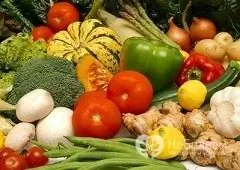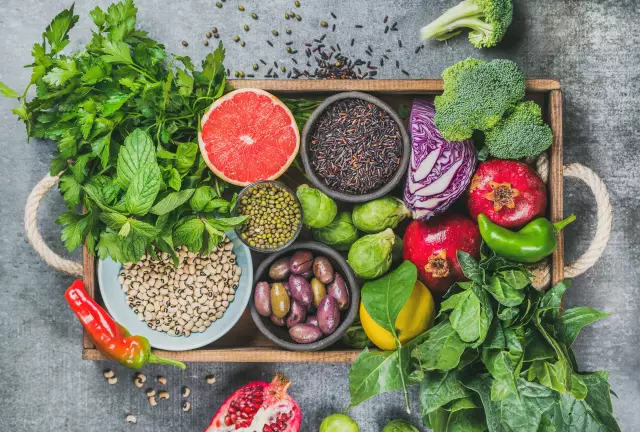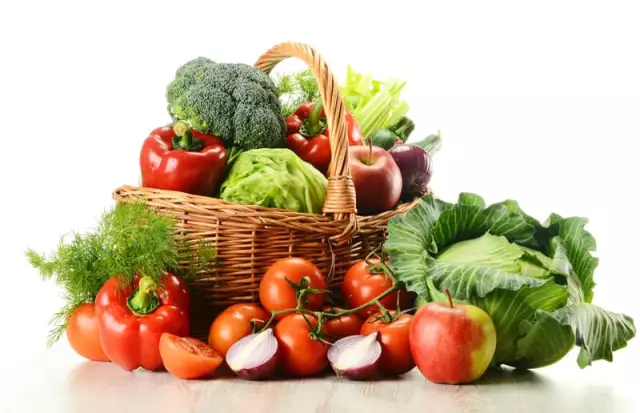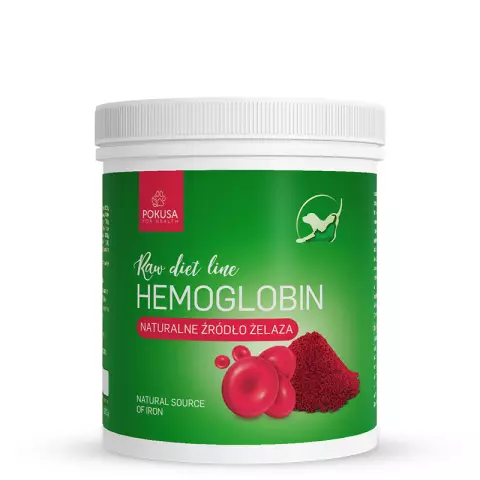- Author Rachel Wainwright wainwright@abchealthonline.com.
- Public 2023-12-15 07:39.
- Last modified 2025-11-02 20:14.
Is vegetarianism good or bad?

There is still no unequivocal opinion whether abstinence from food of animal origin is beneficial.
In recent decades, the inhabitants of our country have begun to refuse meat without exception, preferring to eat only fruits and vegetables. If at first this innovation was perceived with humor, as a whim, then over time, nutritionists and doctors began to sound the alarm. Indeed, only meat (beef or pork) contains trace elements, without which the normal functioning of the body is simply impossible.
Quite a controversial question - is vegetarianism harmful? Here it is worth taking into account a variety of situations, among which the age of a person, his lifestyle, health status, as well as moral convictions and preferences play not the last place. Man is an omnivorous being, but all people perceive meat differently. Someone cannot imagine a day without a fried steak, while someone, on the contrary, cannot step over themselves and eat a piece of chicken grown on a farm.
Also, the area of residence of a given individual plays an important role. Take, for example, an African. If he eats a fatty pork leg for breakfast, then it is likely that closer to lunch he will feel unwell, since this is a very big load on his heart for him. At the North Pole, people simply cannot exist without meat and will be freezing all the time. The same can be said for physical activity. In most cases, vegetarianism and sports are two incompatible things. Indeed, in this case, the organic amino acids that are so necessary for sports will not enter the body.
What is vegetarianism?
A vegetarian is a person who, for certain reasons, refuses food of animal origin (milk, meat, eggs, fish, poultry). In addition, vegetarians, due to their convictions, do not wear clothes made from our smaller brothers, and also do not use cosmetics that have been tested on them. Even some drugs containing glycerin and gelatin are prohibited.
The reasons for refusing animal food are different for all people. Mostly these are religious, ethical and environmental biases. In some cases, vegetarianism is directly related to health problems, when the patient is simply prohibited from eating meat.
It is much worse if a person becomes a vegetarian not because of personal convictions, but simply by succumbing to the trend of fashion. Kate Winslith, Madonna, Drew Barrymore - the ideal figures of these beauties can only be envied. So some young ladies, wanting to get in good shape and be like their idols, become vegetarians. However, one cannot be equal to them. It is worth remembering that the health of the stars is monitored by experienced nutritionists and doctors, who clearly and quickly respond to any disruptions in the body of their clients.
To be or not to be?
If you nevertheless made the final decision to become a vegetarian, do not rush to immediately ask for trouble. First, think carefully about your decision from all sides. Secondly, undergo a complete medical examination to rule out possible hidden diseases and avoid possible negative consequences.
It is better to switch to plant foods gradually, so as not to cause a malfunction of the digestive system. Try to eat fruits and vegetables fresh, not frozen.
As for children, vegetarianism is contraindicated for them. Their diet should contain meat, milk, and fish.
Cons of vegetarianism
Nature intended that the human body cannot function normally without meat. Unfortunately, some of the amino acids found in meat cannot be obtained from any plant-based products. Therefore, by eliminating meat from the diet and switching to vegetables and fruits, people run the risk of getting bone and joint problems as a reward.
By the way, it is a fact that meat-eaters have a calmer character, they are much less likely to have breakdowns and tantrums. In addition, meat-eaters, due to the high content of vitamins D and B in food, rarely encounter diseases of the central nervous system. As for iron, zinc, phosphorus and iodine … Undoubtedly, all these substances are also present in plant foods - carrots, apples, tomatoes. But most of them are very poorly absorbed by the human body.
It follows that the harm of vegetarianism is undeniable. Avitaminosis is the smallest thing that awaits a person who has given up animal food. It is worth adding to it baldness, low hemoglobin, acne, impaired metabolism, digestive problems that will come over time, after six months or a year.
Positive traits of vegetarianism
Vegetarianism also has a number of positive qualities, among which the main one is the absence of cholesterol. As you know, excess cholesterol is fatal to health. The liver, thyroid gland and heart suffer from it. And what can we say about obesity and atherosclerosis.

Of course, by eating animal food, all these risks can be minimized if you cook it correctly. Meat dishes should be baked without adding vegetable oils, mayonnaise or spices.
The second plus of vegetarianism is the absence of harmful additives. Agree that nowadays it is necessary to talk about the dangers of vegetarianism only if you refuse natural meat from the farm. Nowadays, meat products are full of all kinds of antibiotics, chemical additives, growth hormones, additives and tranquilizers. In addition, special feed is often added to the food of animals, from which they eat less and grow much faster.
In this case, even heat treatment does not save such products from harm. No matter how long you stew or fry meat, all this chemistry still enters the body.
It is worth remembering that at the time of killing, two harmful components are formed in the animal's body - adrenaline and cortisol. As a result, along with amino acids, hormones that contribute to the appearance of excess weight enter the body.
The third plus of vegetarianism is the high amount of fiber. Eating cereals, vegetables and fruits, vegetarians stock up on a large amount of vegetable fiber, thanks to which they are practically not overweight, because all food is absorbed as quickly as possible. In addition, vegetarians do not know what pain and heaviness in the stomach are.
Non-strict vegetarianism: milk, fish, eggs
Non-strict vegetarians, thanks to the presence of fish, eggs and dairy products in their diet, compensate for the lack of many elements. For example, they get calcium from cottage cheese, phosphorus from fish. Eating these products, vegetarians explain this by the fact that it is obtained without harming animals.
However, this kind of vegetarianism is highly controversial. Why is it bad to score a pig, but not to catch a fish? After all, scientists have long proven that aquatic inhabitants can also feel pain.
And yet, non-strict vegetarianism is an intermediate link. If you are not completely convinced that you need a complete absence of animal food, but you don’t want to eat meat, then it is for you.
Found a mistake in the text? Select it and press Ctrl + Enter.






